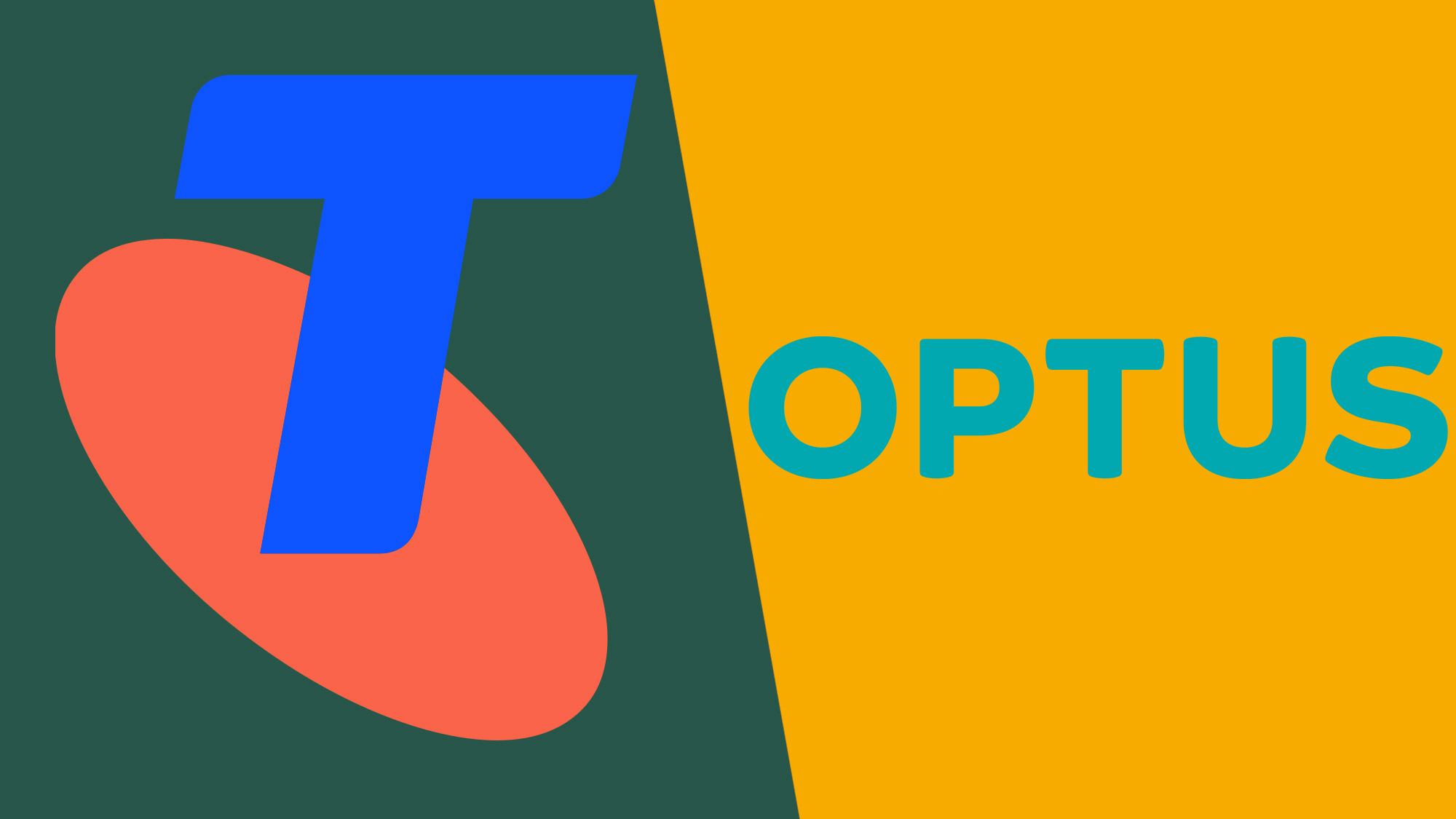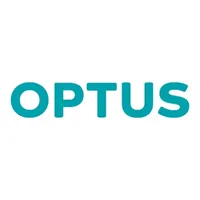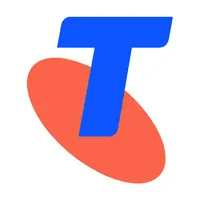Telstra vs Optus NBN: Australia's biggest telcos compared
We investigate the key differences between the major Aussie telcos

Sign up for breaking news, reviews, opinion, top tech deals, and more.
You are now subscribed
Your newsletter sign-up was successful
When it comes to choosing the best NBN plan for you, chances are the first two internet service providers (ISPs) you're going to look at will be Telstra and Optus. These two are the industry heavyweights, although they're slowly but surely succumbing to pressure from smaller telcos that offer greater overall value.
That being said, there can still value to be found in a Telstra or Optus NBN plan, and if you do decide you want to sign-up with a tried and tested provider, this guide should help you decide which comes out on top in the Telstra versus Optus broadband debate.
There’s no hiding that these two major telcos don’t don't come close to offering the cheapest NBN plans, but what they do both offer is a well-performing service alongside lots of optional add-on extras that can help improve the plan’s value. And at the time of writing, both are offering introductory discounts – Telstra for 6 months and Optus for a generous 12 months.
If that’s something you’re looking for in a provider, we’ll be laying out all the differences (and similarities) between the two choices here.
If you know you want to connect with one of these providers, you can jump to our guide to the best Optus NBN plans or best Telstra NBN plans.
Telstra vs Optus NBN: Plan range
- Both providers with plans from NBN 25 – NBN 1000
- Typical evening speed figure claims differ between the two
Both Optus and Telstra have NBN plans covering NBN 25 through to NBN 1000. At the time of writing, neither appear to be offering the faster NBN 2000 plan option.
Other big changes include both providers removing extra perks that once made them a little easier to justify. Optus has dropped its Family Entertainer plan, which came with a standard Netflix subscription as standard, while Telstra no longer offers free trials to select video and music streaming services. Optus does offer AU$20 of credit each month to spend on subscriptions via its SubHub service, but the cost of the NBN plan increases as a result.
What's more, both providers have never exactly been cheap, but following some pricing changes, they're now even more expensive. Put simply, there are better Internet deals to be found elsewhere.

Optus vs Telstra: NBN 50 plans compared
An NBN 50 plan continues to be the most popular speed tier in Australia, although we're starting to faster plans, those faster than 100Mbps – think NBN 500 and NBN 750 – becoming increasingly more common with each passing month.
Here is how Optus and Telstra NBN 50 plans compare.
Optus | 50Mbps | AU$75p/m(first 12 months, then AU$95p/m)
Optus' NBN 50 plan is currently on the receiving end of a 12-month discount, making it better value in the process. Although it must be said the 100Mbps plan is arguably greater value at AU$79p/m for 12 months.
Thanks to this discount, Optus now finds itself sitting in the mid-range for total first year cost. Just note that if you cancel within 24 months, you'll be required to pay for your modem.
• Total minimum cost: AU$381 (includes modem)
• First year cost: AU$900
• Ongoing yearly cost: AU$1,140
• See more: Best NBN 50 plans
Telstra | NBN 50 | AU$95p/m(first 6 months, then AU$109p/m)
As you can see, Telstra charges a higher fee for its NBN 50 plan too, making it hard for us to recommend here at TechRadar. This is especially true because on speed tiers such as this where all providers are likely going to deliver maximum plan speeds and a reliable service, you can find a much cheaper plan elsewhere.
Do note that this plan price does include a modem. Telstra does offer the opportunity to get an internet plan without a modem, in which case the cost drops to AU$90p/m for 6 months, then AU$95p/m.
• Total minimum cost: AU$95
• First year cost: AU$1,224
• Ongoing yearly cost: AU$1,308
• See more: Best NBN 50 plans
- Best NBN plans: our recommendations at every speed
Optus vs Telstra NBN: Price and data allowance
- The prices mentioned below are correct at the time of publishing – February 2026
- Cheapest Telstra plan is AU$93p/m
- Cheapest Optus plan is AU$59p/m
- Optus generally offers better value for money
Cost is the critical factor when considering any NBN plan, so let's break down how much you can expect to pay with these major Aussie telcos.
The cheapest plan with either telco is a 25Mbps NBN 25 plan. Telstra charges AU$93 a month while Optus is currently charg AU$59 a month.
It's a similar story with the other NBN plans offered by the two providers, with Telstra being the more expensive option each time. In fact, based on all the ISPs we monitor, Telstra is the most expensive provider in the country.
You can view a full comparison of the NBN plans offered by Optus and Telstra in the table below. Please note that the prices listed are the regular monthly costs, following any introductory promotional pricing (at the time of writing, neither provider offers an introductory cost, but that could change in the future).
Note that Telstra pricing includes a modem. The cost will decrease if you elect to not have a modem included. Prices are correct at the time of publishing and take into account introductory discounts.
| Header Cell - Column 0 | Optus | Telstra |
|---|---|---|
NBN 25 | AU$59p/m (first 12m) | AU$93p/m |
NBN 50 | AU$75p/m (first 12m) | AU$95p/m (first 6m) |
NBN 100 | AU$79p/m (first 12m) | AU$95p/m (first 6m) |
NBN 500 | AU$79p/m (first 12m) | AU$95p/m (first 6m) |
NBN 750 | N/A | AU$109p/m (first 6m) |
NBN 1000 | AU$109p/m (first 12m) | AU$119p/m (first 6m) |
Optus and Telstra's plan pricing has fluctuated within the previous 12 months – the slower NBN 25 and NBN 50 plans have increased, while higher-speed plans have, in general, come down in price.
What's more, since the arrival of the NBN speed upgrades in September 2025, both telcos have kept good on the promise of offering an NBN 500 plan for the same price as an NBN 100 plan.
Optus' AU$79p/m ongoing rate is also higher than the national average on the NBN 25 tier – which is just under AU$73p/m at the time of publishing – putting it in the upper echelons of providers at this speed tier.
It's a similar story as you move up the speed tiers, with Telstra regularly being among the most expensive providers (often sharing the title with Origin) and Optus trailing not too far behind. Out of the two providers, then, Optus is the clear winner when it comes to value. In the grand scheme, however, neither provider could be considered 'good value' when there are numerous smaller ISPs offering similar plan speeds for much less.

Optus vs Telstra: Cheapest NBN plans
- Cheap NBN plans: low-cost options for anyone on a budget
Optus vs Telstra NBN: Performance and typical evening speeds
- Similar typical evening speed claims across all speed tiers
- Both good options for streaming Netflix
- Optus may potentially experience more frequent outages
Both Telstra and Optus promise to deliver the same typical evening speed of 25Mbps on their NBN 25 plans, 50Mbps on their NBN 50 plans, and 100Mbps on their NBN 100 plans, which is to say that the telcos are promising that customers should expect to get maximum plan speeds most of the time.
It's the same story for the NBN 500 tier, with both promising 500Mbps. Only Telstra offers an NBN 750 plan however, and claims you can expect to achieve maximum plan speeds.
Moving up to the NBN 1000 tier, with a theoretical maximum speed of 1,000Mbps, Optus has recently been dethroned by Telstra. For a time, Optus advertised faster 800Mbps typical evening speeds. But at the time of writing, we've noticed Telstra has increased its claim from 700Mbps to 815Mbps.
We can dig a little deeper to understand what sort of speed you can actually expect, however, thanks to the Australian Competition & Consumer Commission. The consumer watchdog publishes a report each quarter looking into the broadband performance of some of Australia's biggest telcos, and its most recent update in December 2025 found that Optus either met or exceeded its promised plan speeds. Telstra, meanwhile, fell below 100% for the first time in recent memory.
Optus was found to deliver 104.5% of plan speeds across all hours and 103.7% during the busiest hours. Telstra meanwhile recoded 98% of plan speeds across all hours and 97.5% during the busiest. Telstra's figures represent a huge drop from the report prior, where it smashed the 100% target.
Latency is another metric that is important, especially for gamers, and in the latest report neither Optus or Telstra performed particularly well in comparison to some of the other telcos monitored. Optus recorded 9.5ms across all hours and 9.6ms during the busier hours. Telstra meanwhile recorded 9.9ms and 10ms across the same metrics. The best-performing provider was Exetel, with a figure of 6.9ms.

Optus vs Telstra: Fastest NBN plans
- Fastest NBN plans: our picks of the best 1000Mbps, 250Mbps and 100Mbps plans
Optus vs Telstra NBN: Additional fees
- You’ll be required to pay out your modem if you leave Optus within 24 months
- Return modem to Telstra or pay a AU$200 fee
- Both no lock-in contract with no cancellation fee
It’s time to talk about everyone’s favourite part... the fine print.
The good news is that Telstra and Optus no longer charge new customers a AU$99 connection fee, although a fee may still apply if you’re getting a first time NBN connection in a new development.
Both telcos will provide you with a modem-router that comes with 4G backup, but you only get it for free with Telstra (sort of). Optus will also give you its Ultra WiFi Modem 2 for free, but only if you remain connected for 24 months.
You’ll get the Telstra Smart Modem for free when you sign-up for a plan and remain connected for 24 months. If you leave within 24 months, you can return the modem to Telstra or pay a AU$200 non-return fee. Telstra used to apply a monthly charge to its modem, so we're glad to see this is no longer the case. However, if you elect to have a modem included, you'll pay more each month for your NBN plan. You can choose to BYO modem and save some money.
It’s a slightly different story with Optus, as while you’ll also need to stay connected to Optus NBN for 24 months if you want the Optus Ultra Wi-Fi Modem 2 for free, if you leave before this period, you need to pay for the modem.
Optus previously made this a 36-month period, with the modem costing AU$8.50 for each unused month if you left before. The minimum duration has now dropped to 24 months, but the monthly cost of the modem has risen to AU$12.75. So, regardless of when you leave, you'll be paying the same amount for the modem. It's a sneaky move, and one we're not really a fan of.
Aside from this, there’s no additional cancellation fee with either Optus or Telstra, just the remaining cost of your hardware if you leave before the allotted time period.
Both ISPs will determine if a technician needs to be sent out to complete your NBN installation, the costs of which can vary depending on the situation. In many cases this can be free of charge, but on the flip side there are certain set costs that are sometimes unavoidable. If you’re activating an NBN service for the first time in a new development, for example, there’s a fee of AU$300 no matter what ISP you choose.

Optus vs Telstra NBN: Optional extras and freebies
- Telstra offers Fetch and Foxtel entertainment options
- Optus Sport add-on and SubHub specials with Optus
Going with one of the major Aussie ISPs may not be the cheapest option, but they do come with some free perks and more optional extras than most competitors – let’s break down what each provider brings to the table.
As mentioned above, both Telstra and Optus have their own telco-branded modem-routers that are provided 'free' to NBN subscribers. Each is enabled with 4G backup, so they will automatically connect to the internet through the telco’s mobile network if there’s an NBN outage. (Coverage depending, of course.)
If you find the Wi-Fi coverage in your home isn't up to scratch, both telcos offer a Wi-Fi booster. Telstra's comes at the cost of AU$12p/m for 24 months (or AU$288 outright) although it does add that you can receive up to three more at no extra charge if your home needs them.
Optus' Smart Wi-Fi Booster appears to only be available to customers who sign-up for an Everyday Plus NBN plan with no additional charge.
While we haven't been able to test either Wi-Fi booster, we would recommend you also check out the best mesh Wi-Fi systems as a potentially more cost-effective route to full home network coverage.
When it comes to entertainment perks, there is a fair bit of difference between what you'll get from either telco.
Telstra also allows you to subscribe to third-party entertainment services including Fetch TV and Foxtel and you can even add an Xbox Game Pass Ultimate subscription to your NBN plan. If you don't yet own an Xbox games console, you can also buy one through Telstra either outright or on an interest-free payment plan.
Optus has what it calls SubHub. This feature allows you to sign-up to a range of popular streaming services and save up to 10% when you bundle three of more subscriptions together. Supported apps include Netflix, Prime Video, Paramount Plus, Binge, YouTube Premium, BritBox, Hayu and Kindle Unlimited, to name a few. With select NBN plans, you can get AU$20 of credit to spend on SubHub subscriptions.
- Telstra NBN plans: all the options from Australia's top telco
Sign up for breaking news, reviews, opinion, top tech deals, and more.

Max is a senior staff writer for TechRadar who covers home entertainment and audio first, NBN second and virtually anything else that falls under the consumer electronics umbrella third. He's also a bit of an ecommerce fiend, particularly when it comes to finding the latest coupon codes for a variety of publications. He has written for TechRadar's sister publication What Hi-Fi? as well as Pocket-lint, and he's also the editor of Australian Hi-Fi and Audio Esoterica magazines. Max also dabbled in the men's lifestyle publication space, but is now firmly rooted in his first passion of technology.
- Jasmine GearieEcommerce Editor

